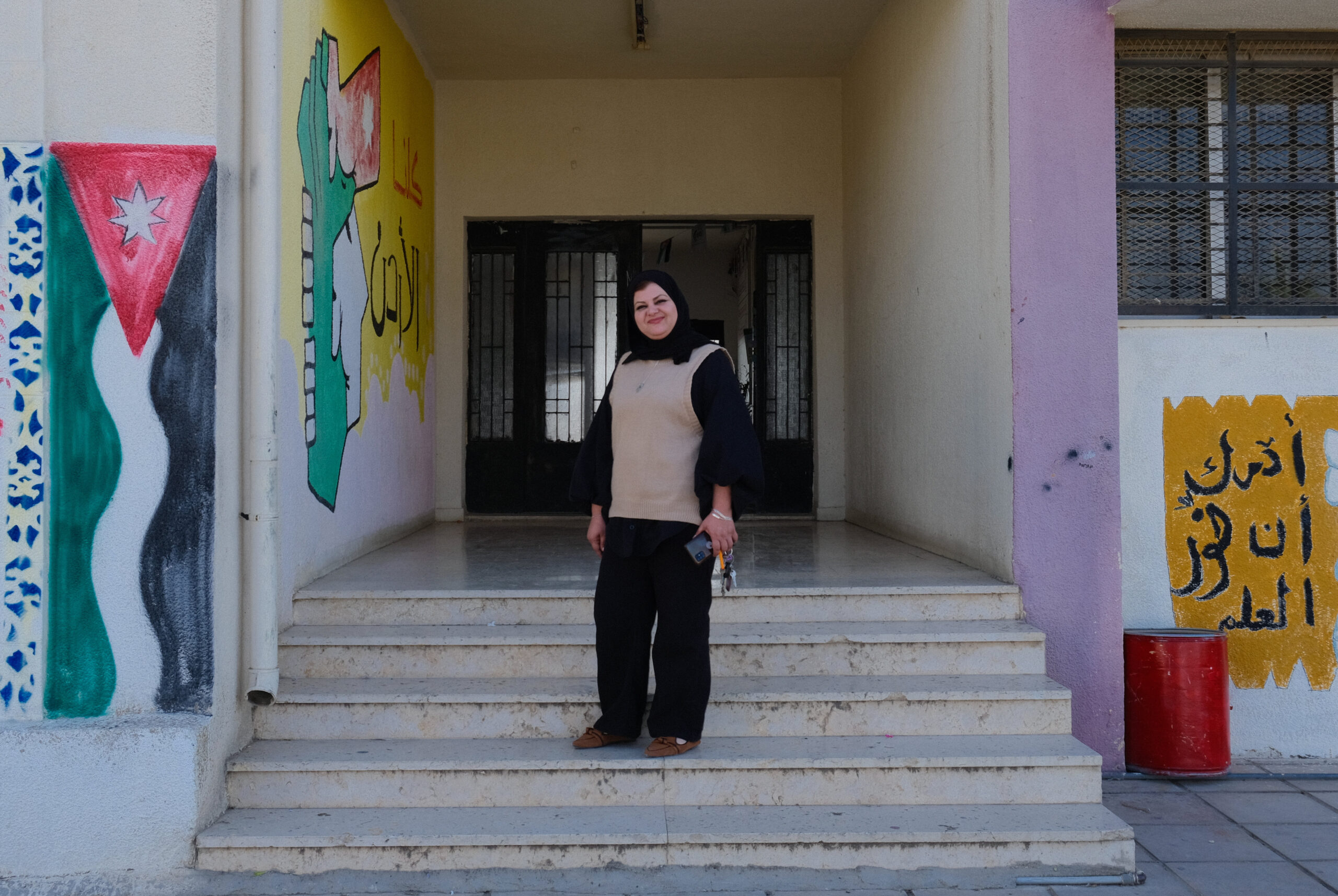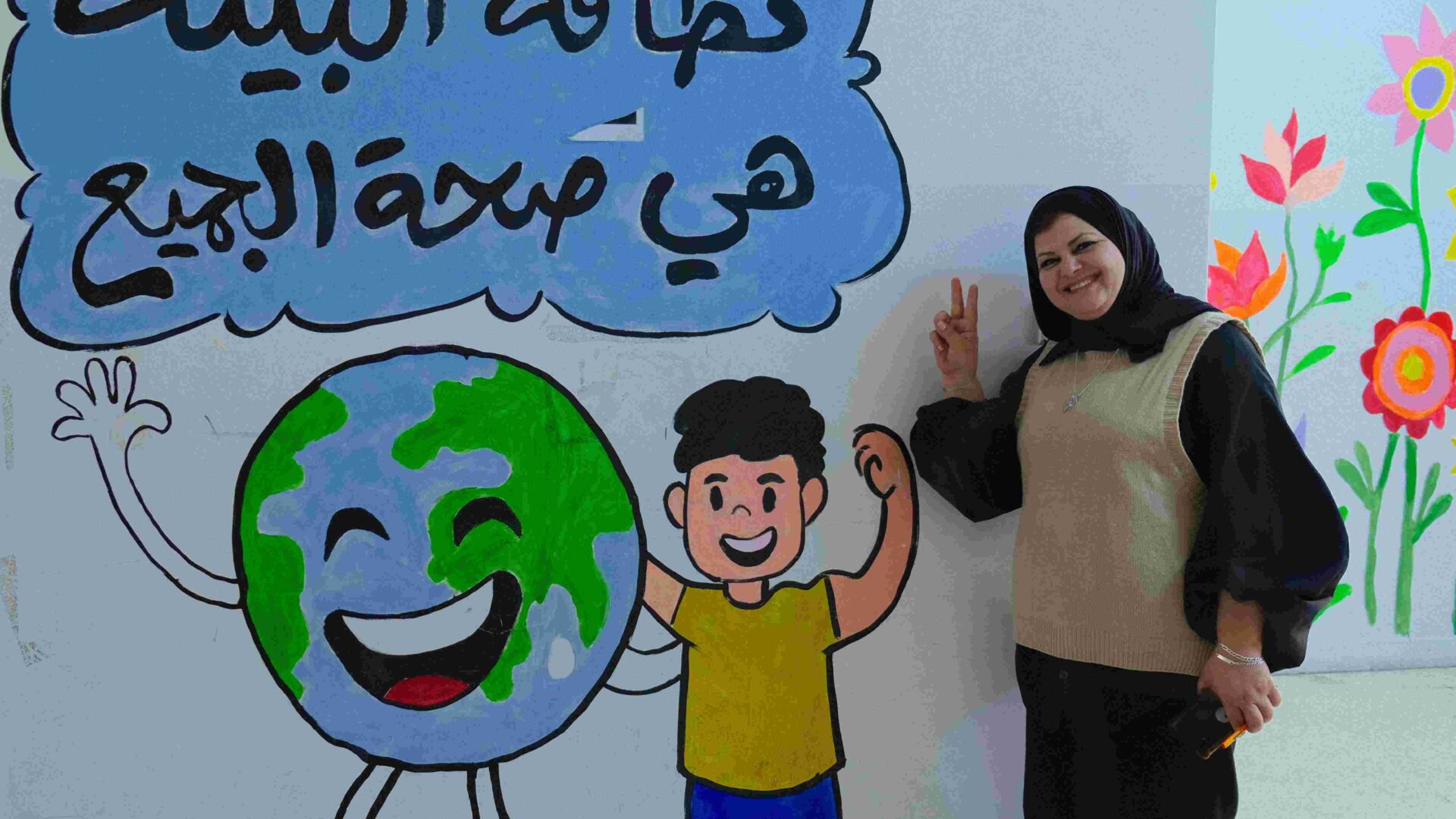(تنزيل النسخة العربية أدناه)
A Welcoming School
Near the historic city of Madaba lies the small village of Um Albasateen, nestled among farms and olive trees. This is where I meet Abeer Sultan, a teacher at the local girls’ high school. I feel a bit anxious; my own high school experience had not been the best, and I usually try to avoid anything related to it. But when Abeer comes out to greet me at the gate, her warm hug immediately puts me at ease.
Getting to know Abeer and her life’s wisdom has taught me invaluable lessons about the depth of human kindness, the significance of going beyond our usual responsibilities, and the critical importance of caring for one another – especially for the younger generation.
As we walk into the school, I am struck by the colourful walls, painted by the students themselves. It’s nothing like the cold, stiff image of a school I had in mind. The halls buzz with activity as it’s break time. Girls run around, some waving or calling out “Hello” in English. I greet back, trying to look friendly and confident, but I can’t help but hide behind Abeer as she leads me to her office.
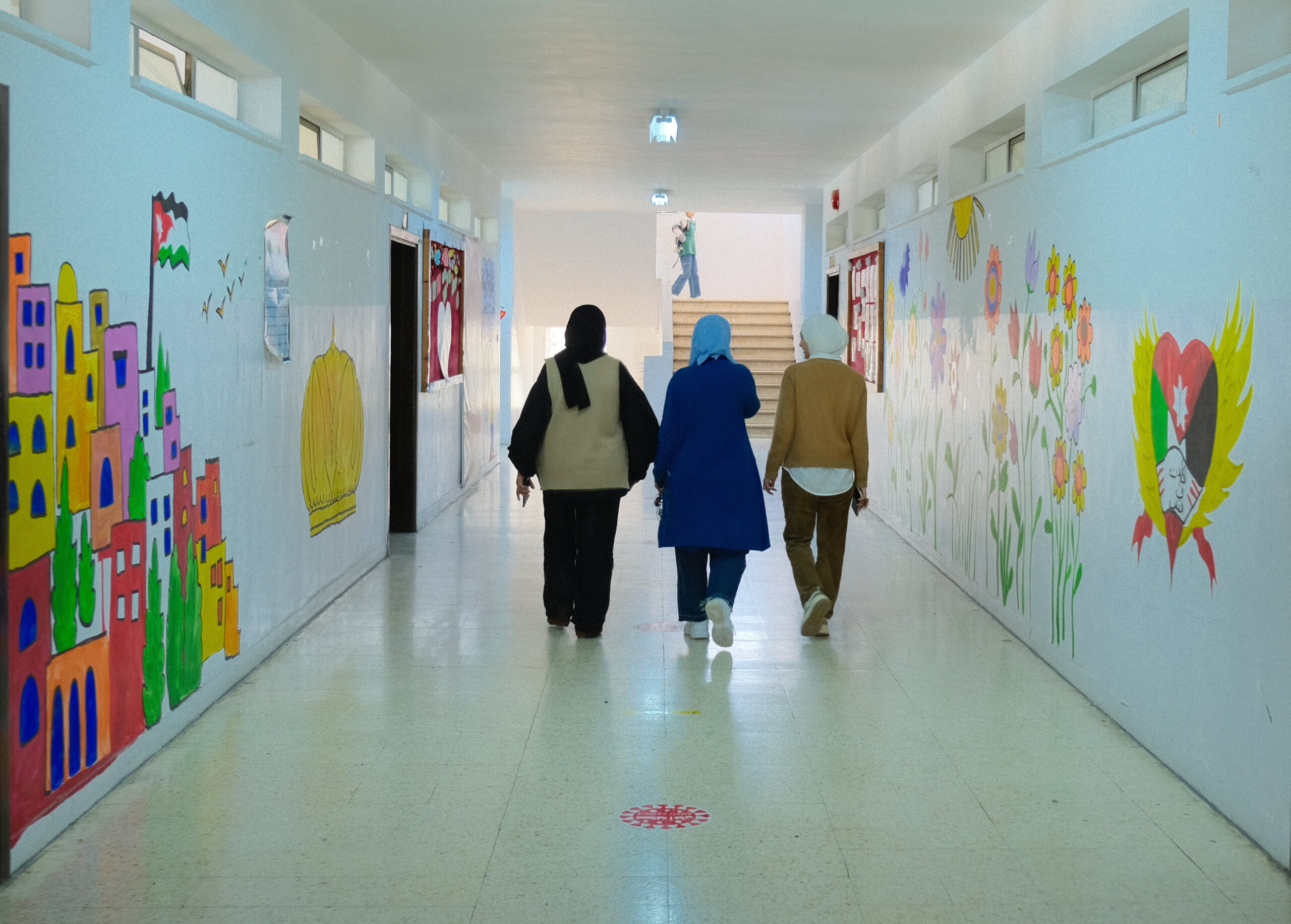
We enter a bright little room with a desk that is piled high with papers. Abeer offers me the traditional Jordanian tea – sweet enough to make my teeth ache but exactly what I need to steady my nerves – and some snacks. We chat as teachers and students come and go – some with questions, others with paperwork, and some just stopping by to talk. Abeer doesn’t have classes until later in the day, so she spends her morning managing administrative tasks.
The school director, an energetic woman with a commanding voice, bursts into the room. She gestures wildly and shouts something in Arabic towards me, and for a moment, I wonder if I’ve done something wrong. But the other teachers laugh and reassure me that this is simply her enthusiastic way of welcoming me to the school.
After a leisurely tea and breakfast, the translator arrives, and as the school bell signals the end of break, Abeer closes her office door. It’s time to begin our interview.
Roots: A Connection to the Past
Abeer was born in 1979 in a Palestinian refugee camp in Madaba. Her family fled Jerusalem after the Nakba (Arabic for “catastrophe”) in 1948, one of the largest instances of displacement and dispossession of Palestinians in history. Her family still lives in the camp. She visits them every Friday. “You can come over some day,” she says. “It’s really nice there.”
I’m confused. How can generations of a family live in a refugee camp still after 80 years? And how can it be “nice”? I ask her to explain.
Abeer clarifies: It is not a refugee camp with tents, as I had imagined it. It’s a housing unit in Madaba that had been built for Palestinian refugees.
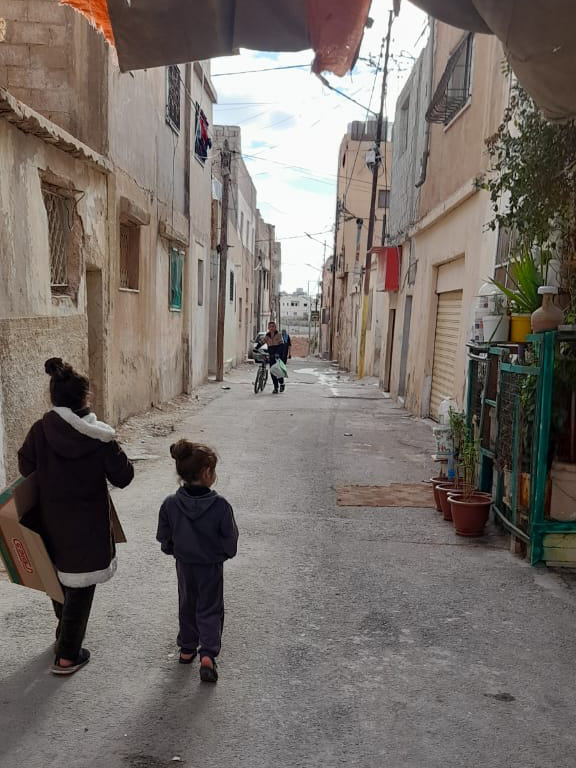
A Joyful Childhood
For Abeer, the most important person in her life is her father. While many girls in her culture are closer to their mothers, her father is what she calls “her safe space.” She can talk to him about anything, and he always tries to find solutions for her.
“When I was born, he bought me a golden necklace and even made it possible for me, and only me, to attend a private university,” she says with a laugh. “I am his favourite child.”
Abeer’s childhood is full of happy memories. Her grandfather had a farm near Madaba, where the family would gather to care for the crops – chickpeas, olives, tomatoes, and cucumbers. They would sing Palestinian folk songs and dance dabke together, a traditional Palestinian dance.
Although she has never been to Palestine, Abeer feels a deep connection to her homeland. Like many displaced Palestinians, she dreams of returning one day and hopes for peace in the Middle East – and the world.
Mother Theresa
Abeer had always dreamed of becoming an Arabic teacher, following in her father’s footsteps. However, life took her on a different path, and in 2003, after graduating from Al-Asraa Ahliya University, she began her career as an English teacher for primary school children. Over the years, she had four children of her own – two girls and two boys – and took a break from her career. In 2012, she returned to her studies, pursuing a higher diploma in technology.
In 2021, she joined her current high school, where she has been an integral part of implementing the Green School Initiative, a project by one of the URI Cooperation Circles in Madaba. Along with students and teachers from various places, her school has planted flowers and trees, started recycling projects, and transformed the walls with vibrant paintings.
When I ask Abeer about the most meaningful moments in her teaching career, she recalls her first job at the primary school.
“There was a boy named Sattam in first grade,” she begins. “He had a heart condition and struggled to socialize. While other teachers didn’t pay much attention to him, I made sure to take care of him until he felt safe and comfortable. I even helped him make friends. Today, he’s in university, and we’re still in touch.”
When I ask what she loves most about her job, her face lights up. “The kids,” she says simply.
Many students come to Abeer with their questions and problems, and she always treats them with kindness. Her dedication has earned her the nickname “Mother Theresa” from the school director.
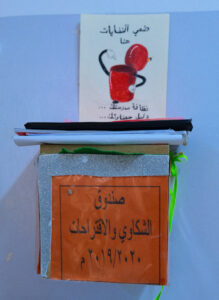
„You MUST be friendly with kids.”
Abeer’s own school experience shaped her teaching philosophy. She fondly remembers her English teacher, who would draw small pictures on her corrected homework. These little acts of kindness made her feel special, and the two are still in touch today.
But not all her school memories are positive. Her math teacher once slapped her hands with a stick for forgetting her homework, leaving Abeer with a lifelong dislike for math.
These experiences have had stayed with her: “You should be friendly with kids.”, Abeer says. „You MUST be friendly with kids.”
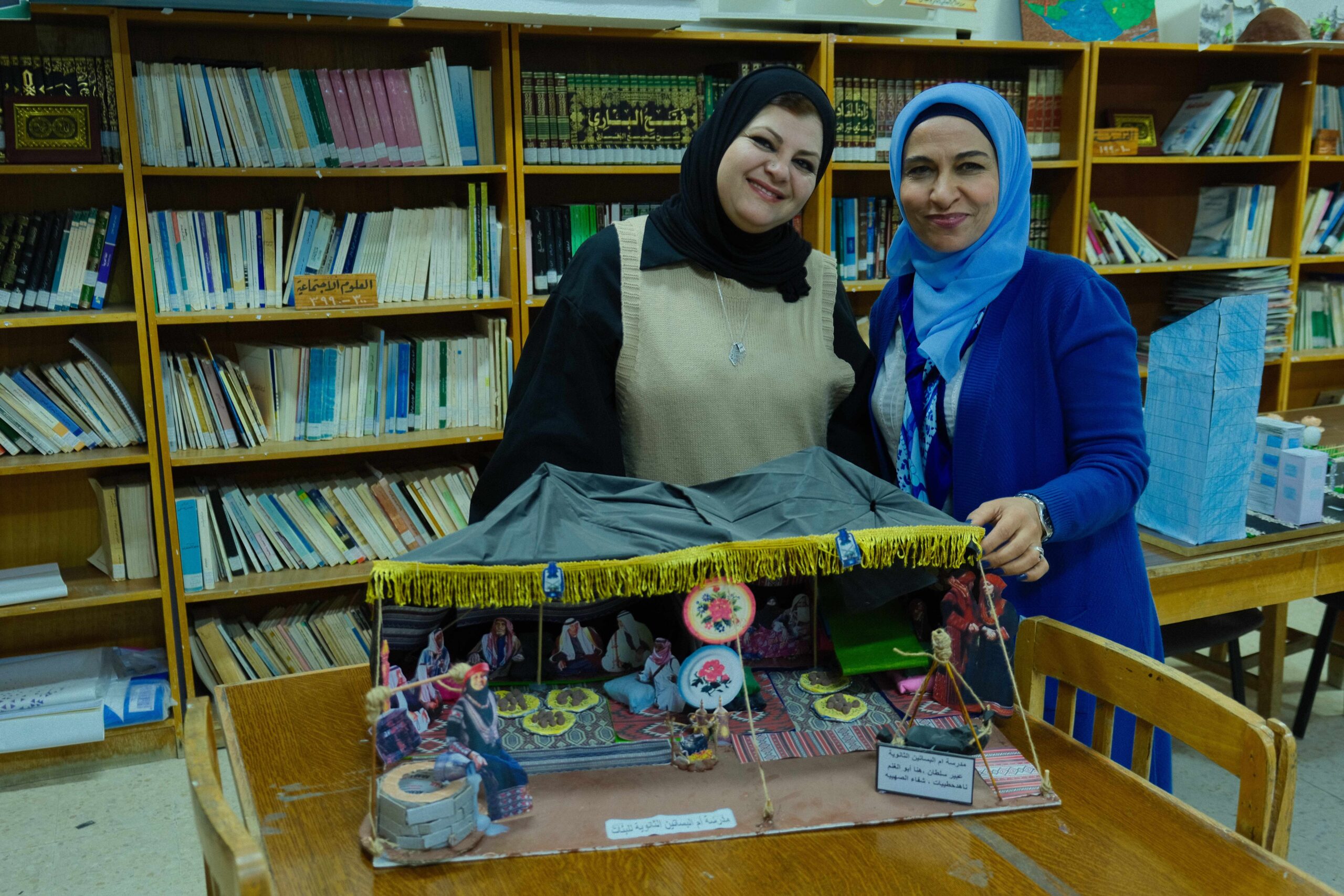
Beyond Teaching
For many students, Abeer is more than a teacher – she’s a friend and mentor.
She shares a story about a girl from her high school. Her mom passed away, when she was born, so the grandmother raised her. Abeer took care of that girl like a daughter, way more than would be usual for a teacher, she even went to some religious charities with the girl to buy her clothes. Every morning at school, the girl would run to her and give her a hug.
Another of her students had a similar story: her mom had passed away and the father married another woman who did not treat her well. So, Abeer also took care of this girl.
The teachers at the school frequently collaborate to support students in need, whether it’s related to schoolwork or personal matters. On occasion, they accompany sick girls to the hospital, as many parents are unable to leave work during the week to pick up their daughters. They also established a school charity to provide food, clothing, and financial assistance to struggling families.
The Impact of the URI Self-Care Training
When I ask Abeer about the URI self-care training she attended and how it changed her life, she says it helped her become more confident.
“Before, if someone criticized me, I would either stay silent or cry. Now, I feel stronger. I can face challenges and defend myself.”
Listening to the stories of other women during the training inspired her. Abeer thought, “Why am I not that confident? I should stand up for myself!” And so, she made the decision to change.
She believes women and girls need more training to build self-confidence – not just in schools, but everywhere. At her school, she says a social worker is urgently needed, as teachers are currently taking on that role in addition to their regular duties.
A Meaningful Task
When I ask Abeer what gives her the strength to keep going, her answer is simple: “I love my job. When I retire, I’ll get tired. I learn something new every day, and the routine is good for me,” she says, smiling.
“I also have cats!” Abeer says out of nowhere, her eyes lighting up with joy. “Three big ones and six little babies.” She laughs, adding, “All of the problems with my husband are because of them.”
While for Abeer, her cats are like her children, her husband doesn’t like them and often tells her: “It’s me or the cats!”
“Well,” Abeer says, her grin widening, “of course, I choose the cats!”
